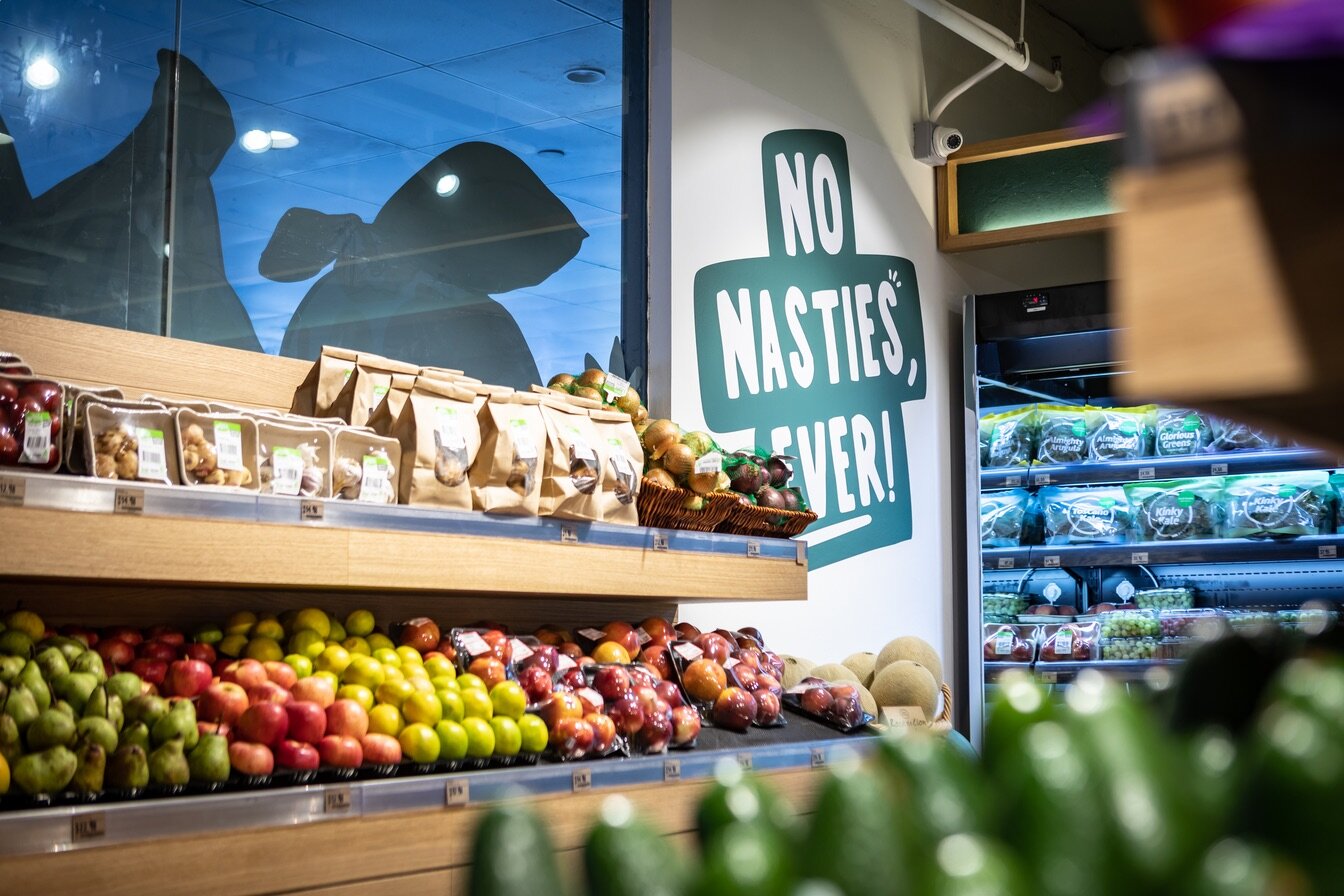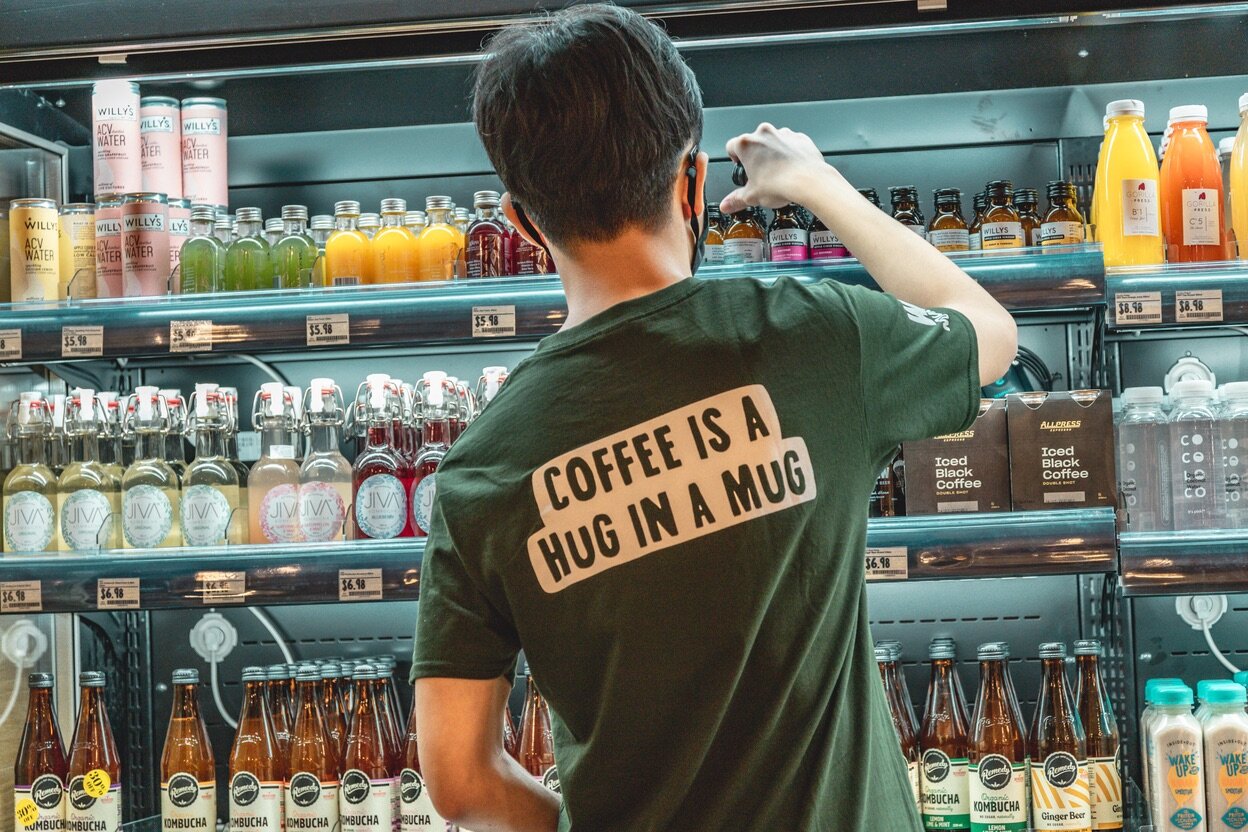From Farm To Table Ethics
Little Farms is widely known as a homegrown gourmet grocery online chain that delivers fresh produce to our doorsteps. It has had a lot of success as an effect of the pandemic. Online orders surged by 30 times compared to pre-pandemic levels, and as such, orders are now 10 times as much as before.
But what many are not aware of is Little Farms’ big efforts in caring for its customers, the environment and the community it lives in.
Little Farms is Singapore’s friendly neighbourhood market, specialising in the highest quality and freshest all-natural and organic produce, meats, seafood, dairy and grocery. Its Cafe and Bistro craft healthy and delicious meals and beverages, while the baristas serve up some of the best coffee and tea in the city-state.
The first store opened in February 2016 to meet the growing demand for fresh, clean and ethical food in Singapore. Later that year, it started servicing online orders island-wide. Today, Little Farms operates five stand-alone stores and two restaurants on top of its e-commerce grocery.
“We are focused on serving our customers the best all-natural, healthy and delicious food we can on a daily basis,” according to Little Farms. It stresses the importance of having the best fresh produce and high-quality products possible from carefully picked independent suppliers and farmers in Australia, Europe, USA and other parts of the world.
What happens when that supply chain fluctuates especially since approximately 90% of food supply in Singapore is imported, and the C-19 pandemic is not going away anytime soon?
“The ebb and flow of demand is impossible to predict, and every time we have a fluctuation we run the risk of having too much or too little products. One important challenge is the cost and frequency of transportation, specifically flights for us, as we bring in most of our fresh produce ourselves from overseas. We do our best to adapt, and try to minimise cost, but there are times where those added charges hit hard, and we are forced to adjust pricing as such,” says Little Farms.
When this happens Little Farms chooses to be transparent to their customer and communicates this clearly to them. The positive flip side is when there is an abundance of great produce, or it’s able to get special access, pricing or sponsorship, it passes those savings to its customers – all part of its efforts to sustain long-term relationships with them.
Little Farms’ sustainability practices extend to the way it treats near-expiration date produce. It formed an alliance with D2L (Divert For 2nd Life) after receiving an email from the latter. D2L is an NGO that’s all about diverting away from the bin edible items that could still have a second life, and specialise in rescuing unsellable but still edible items with a shelf life that would otherwise be discarded.
“D2L takes our products that are nearing expiration or over-ripeness and distributes them to the community, where beneficiaries include caregivers, rental flat residents, migrant workers and shelters – if the products are edible,” Little Farms says. “And if not, turn them into various non-consumption uses such as compost and animal feed. As a result of our efforts, products that would otherwise have ended up in the bin are put to great use.”
The collaboration between Little Farms and D2L works towards achieving zero food waste benefits the community, the environment and supports climate change goals. The effort is quite substantial.
“We always strive to be better, and do better for the environment and the community, especially when it comes to food waste. Reducing our waste and helping to see that those resources go to places of need is a win-win partnership,” says Little Farms.
The pandemic continues to create hurdles, and there are many to list.
“We learned the cycle of consumerism. When it’s too little, we disappoint our customers and lose potential sales. When it’s too much, we have an increase of shrinkage, and food wastage jumps up significantly.” Little Farms continues. “This is where having a partnership with D2L is beneficial for the community, because at the very least those items are not going to waste.”
Whether customers are shopping or dining, Little Farms hopes to put smiles on their faces and great food in their baskets.
“When we do these things right, the possibility to grow presents itself, and we are currently looking to expand into other neighbourhoods in Singapore and other countries in the future.”
Expect further initiatives in the pipeline that focus on reducing packaging and plastic, as well as being more and more focused on sustainability.
“We want people to know and trust that we provide ethically sourced products, and align with brands that share our focus on sustainability.”
Karmela | ws
(Images: Little Farms) | Diver For 2nd Life | Recipes, Guides To Buying Fresh Produce





